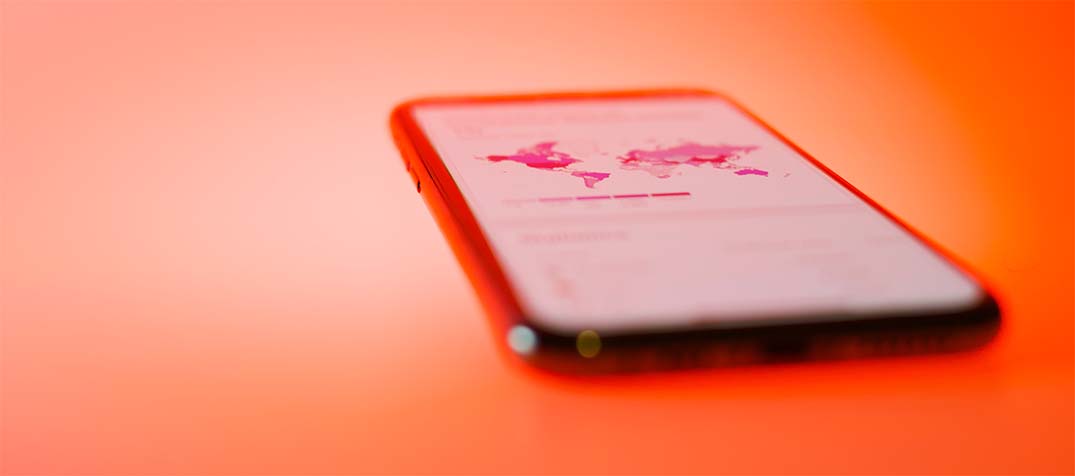The Delta, a corporate venture builder, has partnered with academics and research groups from the University of Cape Town to develop and deploy a mobile application that aims to stop the spread and transmission of the Covid-19 virus in South Africa.
The application, Covi-ID, employs QR code scanning to track and trace citizens’ health status. The app operates on blockchain technology in order to ensure the privacy of all users information, offering a decentralised solution. And even those without access to a smartphone can benefit and make use of Covi-ID.
As worldwide lockdowns continue to be put into place, as well as being extended, the effects on the international economy are proving to be detrimental. It can be argued that these effects are amplified in developing and emerging countries such as South Africa. While medical professionals and scientists are working around the clock to develop treatments, and ultimately a vaccine for the Covid-19 virus, transmission rates are still high. In the interim, there is an ever-growing need for innovative solutions from all industries to assist society in tackling this pandemic.
The rise of the fourth industrial revolution, characterised by emerging and disruptive technologies such as blockchain, coupled with the unstable climate currently being experienced, provides a significant window of opportunity for IT companies such as The Delta to be frontrunners in building innovative solutions to this problem.
“Through blockchain technology applications like Covi-ID, we can assist in containing the spread of the virus without compromising the privacy rights of individuals,” says Louis Buys, CEO of The Delta. “The intention is to track the virus, not the people.”.
This is made possible by employing a self-sovereign identification (SSI) management system whereby users (citizens) can provide verified health status information without giving away all of their personal details. Essentially, SSI’s permit for “trust without access”.
Through geolocation services, the Covi-ID app will be able to trace not only the virus, but also the contacts of those who were in close proximity to individuals with the virus.
As testing facilities become more accessible (both logistically and financially) the broader public will be able to have medical professionals verify their health status which will then be recorded on the blockchain. A three colour scheme approach has been adopted, green (poses no risk), yellow (apply social distancing) and red (self-isolate) and will be utilised when individuals are entering public spaces such as restaurants or shops.
This will be done by QR codes being scanned upon entrance either through your smartphone or via a laminated paper-based disk should you not have access to a smartphone. For users with a smartphone, this digital identity can be obtained through the mobile app. For those without access to a smartphone, individuals will be able to have their information recorded via corporate partners through “custodial self-sovereign wallets”. Here, a picture will be taken as well as certain details provided by the user and in return, they will receive their QR code. Another unique feature of the project is the economic incentive schemes that are offered, such as airtime vouchers, in return for individuals practising good hygiene.
A more detailed and technical understanding of the specific process flows within the application can be found at https://medium.com/coviid/covi-id-privacy-preserving-covid-19-status-verification-c11d59ec92f6
In the South African context, if the individual’s status of the virus can be recorded and located, it will allow those healthier individuals who don’t pose risk and therefore aren’t at risk to continue their business operations, which will inevitably help revive the local economy sooner rather than later. Covi-ID’s premise is simple: if you can anonymously figure out where the virus is spreading – and from whom – without breaching core privacy rights of users, then you can also figure out who doesn’t have it and where it isn’t spreading. Not only is the app tracking the status of those infected, but it is also tracking the status of those who have recovered and aren’t infected. Therefore, by leveraging this data, those individuals who are healthier and pose little to no risk can return to business. This solution provides a secure and healthy avenue to kickstart South Africa’s economy.
What is unique about this project is that it is providing a context-appropriate technological solution. Many of the tech-based solutions in first world countries, while they may be effective there, would not be feasible nor applicable in developing nations. Poorly designed technology or technology by itself is usually not effective and this is a key reason why ‘ICT4D’ projects in developing nations often fail. However, by adhering and catering to socio-cultural norms and seriously considering the device availability of a large group of the South African population, the Covi-ID will certainly aid in kick-starting our economy.

